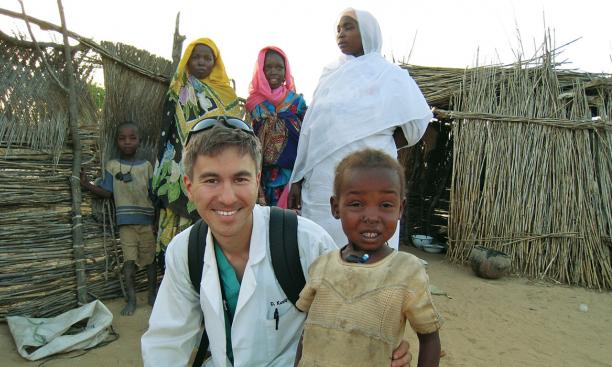
For most of the year, vascular surgeon David Kuwayama *08 can be found in an operating room at the University of Colorado Hospital. But last October, he repaired bullet wounds from AK-47s and performed amputations in the Democratic Republic of Congo. In Colorado, he typically performs three operations a day; in Congo, he was performing up to 25.
For six weeks each year, Kuwayama takes unpaid leave to volunteer for Doctors Without Borders. Working for the organization has been Kuwayama’s dream since high school. He attended a Jesuit school in Wisconsin where his teachers — all priests who had worked in developing countries — encouraged students to follow international news, from the Bosnian war to the Rwanda genocide.
Kuwayama’s medical training did not follow the traditional path. During his residency, he detoured to Princeton’s Woodrow Wilson School to get a master’s degree in public affairs. The only physician in his class, Kuwayama wanted to study policies related to humanitarian aid. While there, he worked with former Sen. William Frist ’74, a visiting lecturer at the time, and spent six weeks in the Darfur region of Sudan assessing the surgical needs of refugees.
Kuwayama’s first Doctors Without Borders mission was to a refugee camp in Congo-Brazzaville, where he was the camp’s only surgeon, performing C-sections, doing leprosy surgery, and removing tumors, procedures outside the normal scope of his practice. “Never in anything in my life have I felt more valuable,” he says. “If I just decided to leave, people would die. I can’t say that about any other situation I’ve been in.
